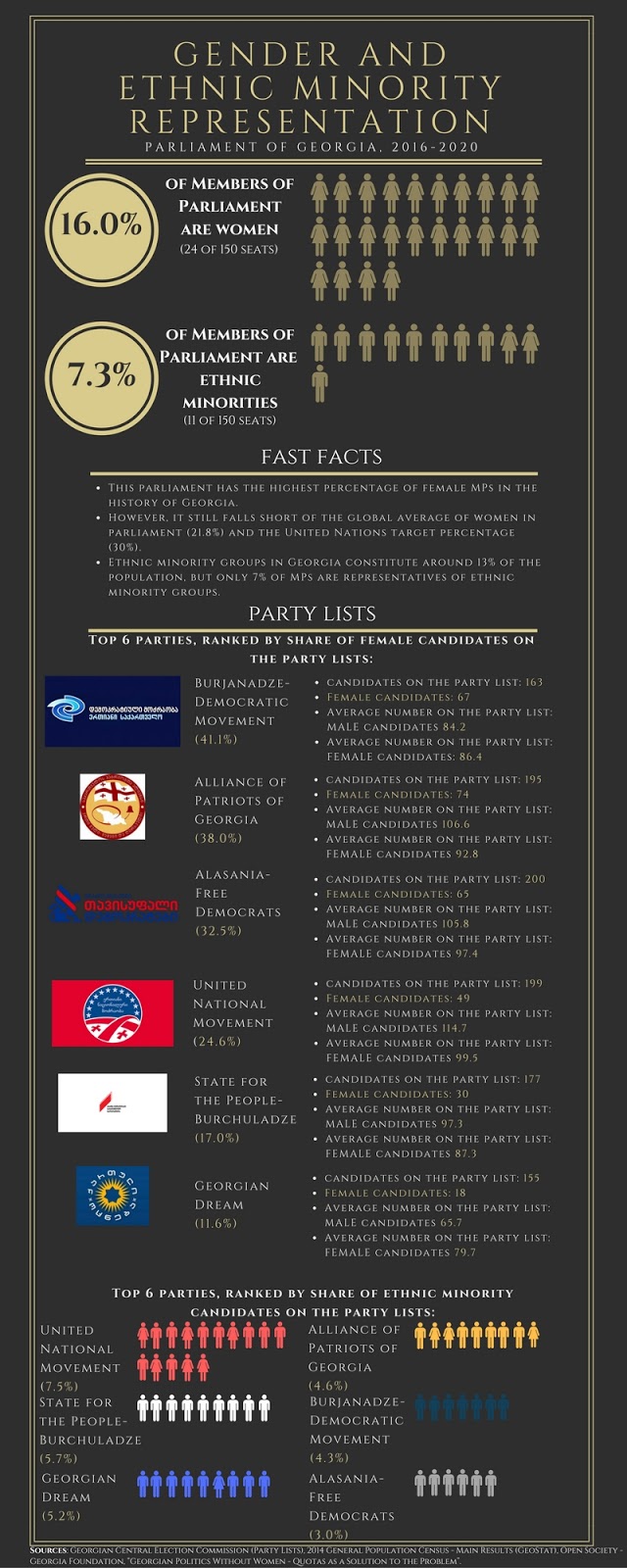The results of the 2016 Parliamentary elections in Georgia reveal some interesting patterns about the representation of women and ethnic minorities in Georgian politics. In the run-up to the election, lawmakers considered instituting gender quotas to come closer to the United Nations’ target of 30% of seats in parliament filled by women. Civil society organizations also lamented low ethnic minority participation in elections in Georgia. In this election cycle, women won 24 out of 150 seats (16.0%) in the upcoming parliament, and ethnic minority candidates won 11 seats (7.3%). While these figures still fall well short of international recommendations, Georgia’s next parliament will have the highest share of women and ethnic minorities that it ever has.
However, substantial roadblocks to the inclusion of women and ethnic minorities in electoral politics still exist. After the 2012 elections, the European Center for Minority Issues assessed party list composition as one of the major factors preventing women and representatives of ethnic minorities from being represented fairly in the parliament of Georgia. The infographic below shows the top six vote-getting parties in the 2016 election, ranked by shares of women and representatives of ethnic minorities on their party lists.
Not surprisingly, in the two parties that are led by women (Nino Burjanadze – Democratic Movement and the Alliance of Patriots of Georgia, chaired by Irma Inashvili), women tend to be better represented throughout the entire list, in spite of the fact that these two parties are generally seen as conservative by international observers. Importantly, the party that won a constitutional majority, the Georgian Dream (GD), had the lowest share of women on its party list (11.6%) of the top six parties. However, female candidates’ average number on the GD party list was 14 positions higher than that of male candidates (respectively, 65.7 and 79.7).
In terms of ethnic minorities, the upcoming parliament will include representatives of several ethnic groups, including Armenians, Azerbaijanis, Ossetians, Abkhaz, and Yezidis. Of the top six parties, the United National Movement (UNM) had the most ethnic minorities on its list, including Samira Ismailova, the first Azerbaijani female majoritarian candidate in Georgia’s history. Election results show that GD and UNM are still dominant in districts heavily populated by ethnic minorities, although a few other parties have made efforts to include similar or even greater shares of ethnic minority candidates on their party lists.
To explore this subject further, take a look at our Online Data Analysis platform, which has a number of surveys which asked about attitudes towards ethnic minority and gender representation in parliament. Also, take a look at CRRC blog posts on the representation of women in Georgia’s parliament compared to Armenia and Azerbaijan and public opinion about women in parliament in Georgia.













